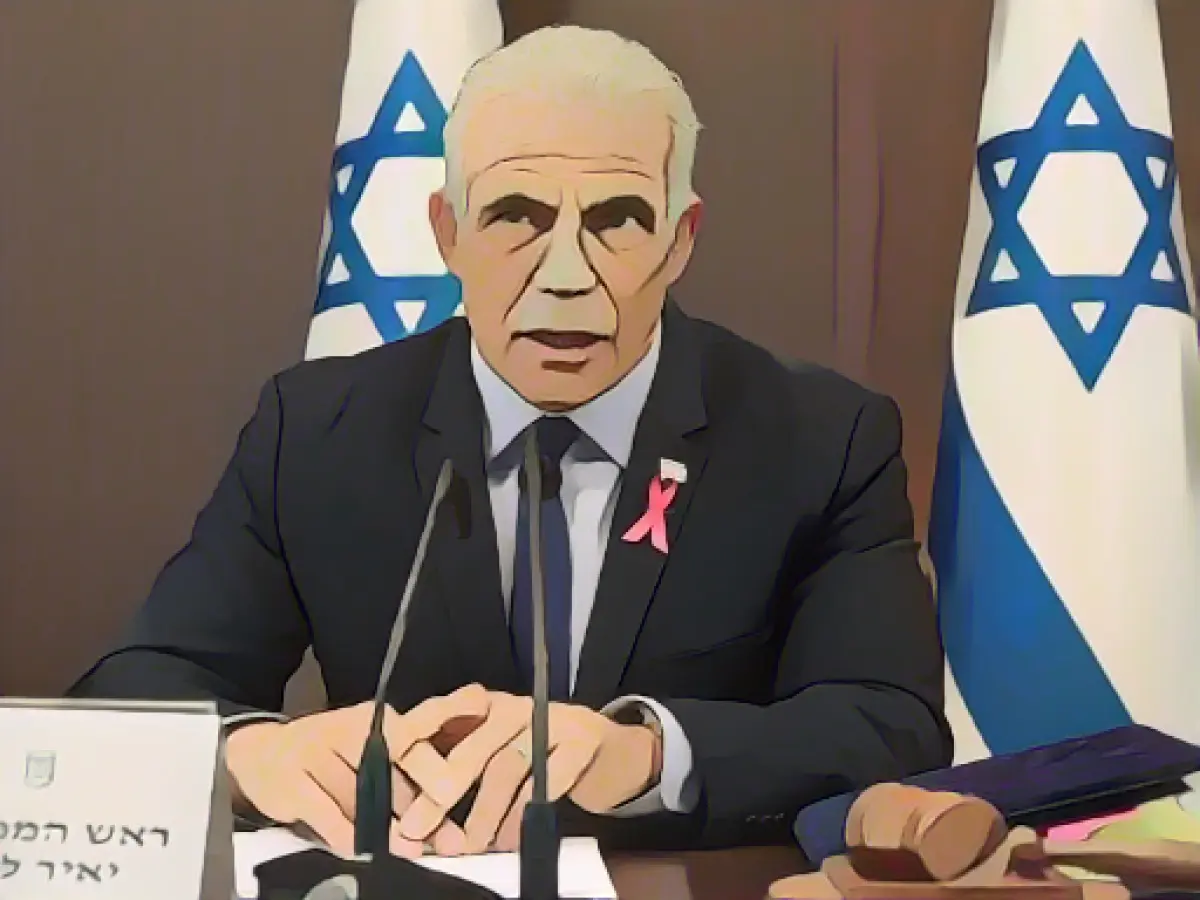Taking a break from the political turmoil dominating Israel, let's dive into the recent events shaking up the nation's political sphere. Israeli opposition leader Jair Lapid has publicly called for Prime Minister Benjamin Netanyahu's resignation, citing a loss of trust from the citizens, the international community, and most significantly, the security apparatus.
Lapid, head of the centrist Future Party, isn't just advocating for a change; he's proposing the formation of a national government, aimed at reconstruction, that would include both religious parties and his own, but exclude Netanyahu's far-right coalition partners. Critics have voiced concerns regarding the proposed coalition partners' controversial judicial reforms, arguing they undermine Israel's security.
Reacting to Lapid's statements, Likud, Netanyahu's party, has accused Lapid of pursuing a government that would ultimately establish a Palestinian state. This argument, in turn, has intensified the political standoff between the two sides, further fueling speculation about the government's future.
It is noteworthy that Netanyahu has been under considerable pressure due to widespread criticism following the October 7 political and military failures, a fact that Lapid took advantage of. Moreover, the ongoing conflicts in the Middle East have added weight to the calls for a change in leadership.
Looking closer, the need for a change in leadership moments after the end of a brutal conflict between Israel and Hamas shows the severity of the situation. The call for an end to political arguments and focus on security and the economy has charged the atmosphere with a renewed sense of urgency. However, the prospect of another election next year mirrors a bleak continuation of current political disagreements.
As the situation unfolds, it's essential to keep an eye on the coalition dynamics, particularly with the threat of Minister Itamar Ben Gvir's resignation. Lapid's offer to support the government to secure the Gaza ceasefire deal may help rescue the government from further crises. Nevertheless, the recently proposed electoral reforms aimed at suppressing Arab-Israeli voter turnout have sparked widespread controversy, and their potential implications might exacerbate the ongoing polarization within Israeli society.
This tightrope walk between a need for change and the fear of instability continues to shape the political landscape in Israel. With the country's future hanging in the balance, the tumultuous journey towards stability contradicts the desperate calls for peace and reconciliation.








